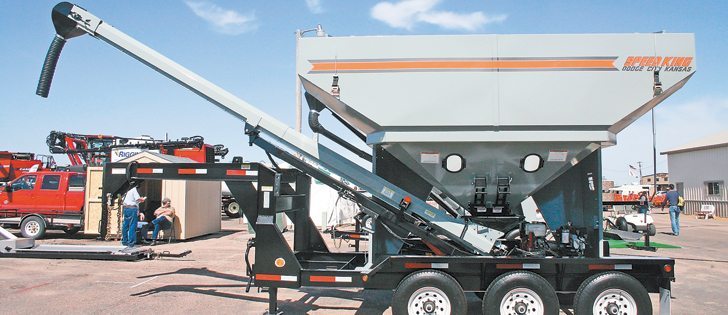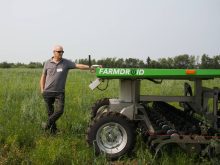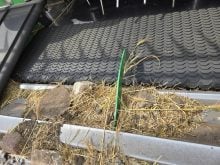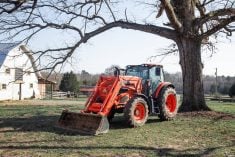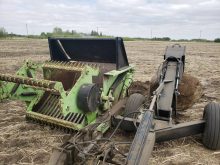Seed totes | Speed King retains seed integrity and uniformity from seed cleaning plant to field planter
A pretty decent crop could be expected if every seed going into a specific field was uniform in size, weight, shape and quality.
Seed uniformity within a field means that everything should happen at the same time if Mother Nature is kind: germination, emergence, application of crop protection products and harvest.
Uniformity is possible and even routine on some farms, where every seed going into a specific field comes off the same seed run.
However, all the benefit of seed uniformity disappears the moment those valuable seeds go into bags. It’s impossible to keep track of every seed in a seed lot from the cleaning plant to the field.
Read Also

Agritechnica Day 2: The future of tractor power, building quicker crop apps and large farms and tech
Agritechnica Day 2: The future of tractor power, building quicker crop apps with Syngenta and large farms and tech
Seed totes have emerged as a solution, but the tender system remains a nagging issue because tractors and drills can waste valuable time waiting for seed.
The tender issue is even more complex if the producer wants to retain the integrity of seed from plant to drill. The tote system is designed to do that, but it must keep up with the efficiency of a modern seeding operation.
Crust Buster Speed King of Dodge City, Kansas, is one of the manufacturers stepping up to the tote challenge.
The entire Speed King line of tender carts has been designed to feed today’s high-efficiency seeding systems, said dealer Kellen Huber of TriStar Farm Services in Grand Coulee, Sask.
“Producers are doing a lot more acres today and they’re more aware of the quality of the seed they’re putting in the ground,” Huber said.
“When Pioneer introduced their Probox Tenders, that was really the solution guys were looking for. But producers needed the right equipment to handle those boxes efficiently.”
Huber said Speed King’s handling equipment lets the seed tender keep pace with planting and seeding equipment. It won’t leave tractors, planters and drills sitting idle waiting for seed.
“Take canola for example,” he said.
“Even if you buy quality seed from a reputable source, every bag has different seed sizes, different gram weights per thousand and other variations.
“When you buy a Probox with 2,000 pounds of canola seed, all those seeds are identical. They all came off the same run. End result is a better crop. Now think about 40 bags of seed at 50 lb. each. You can get a real mix of different seed going through your drill.”
A high capacity bulk cart and a four-box rotary seed handling cart are two of Speed King’s main seed handling devices.
The four-box unit carries four 2,000 lb. Proboxes on a large, rotating platform.
The rotary cart allows producers to either feed a lot of one seed variety to a single large seeding operation or four different crops to four different fields.
The operator rotates the turntable to position the desired Probox over the discharge conveyor.
The gate closes tightly when the seed load is delivered so no cleanout is needed and there is no cross contamination on the delivery belt. The four-box rotary seed handling tote is mounted on a twin axle trailer.
Speed King also has bulk delivery carts from 160 to 330 bushels on triple axles.
The large cart has a 180 degree pivot conveyor with a three-piece telescoping downspout that extends to 12 feet, making seed delivery a one-man operation.
The cart has two individual compartments that have automatic cleanout with no cross contamination. The conveyor has an eight inch belt running in a six inch tube. Discharge varies from 500 to 900 lb. per minute, depending on the product. Options include a liquid inoculators and digital scales.
For more information, contact Huber at 306-586-1603 or visit www.tristarfarms.com.


